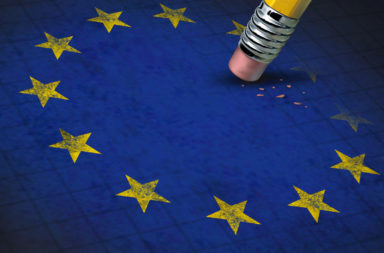It’s easy to dismiss European foreign policy as ineffective or irrelevant. Yet the EU, with its ability to pool all member states’ expertise, resources and diplomatic weight, has often provided a better means of achieving Britain’s foreign policy goals than the UK could accomplish by itself.
The UK has played an active role in implementing and shaping EU foreign policy priorities. While far from flawless, joint EU action has had a real impact on some of the most important global questions, including those directly affecting UK interests.
Three examples show how this has worked.
Six years ago, Somali piracy was out of control. Pirates were seizing ships and hostages in the busy shipping channels by the Gulf of Aden; 174 attacks were recorded in 2010. Although an international problem with an estimated global annual cost of $8-12bn, the UK shouldered much of the financial burden. The actions were threatening British ships as well as goods transported to the UK. The effect on the UK maritime sector (including the insurance, banking and legal sectors), accounting for almost 2% of GDP, was even more significant.
The EU tackled the symptoms and the root causes of the problem in a way no one country could. A European naval force (under the command of a British admiral) took up patrols off the coasts of Yemen and Somalia. The EU set up a civilian training mission to build the capacity of the Somali coastguard. The EU funded an African Union peacekeeping mission, and invested heavily in coastal communities and national infrastructure. These remedies worked. In 2015, the number of Somalia-based attacks fell to precisely zero.
Case No. 2 concerned Ukraine. Just days after the demonstrations that culminated in the ousting of Viktor Yanukovych, the country’s president, and Russia’s annexation of Crimea in 2014, David Cameron, the British prime minister, declared the UK would ‘stand up for the people of Ukraine’. This meant working through the European council to introduce EU-wide sanctions on 147 Russian individuals and 37 Russian entities, as well as Russia’s energy and defence sectors. It entailed strong European support for the new Ukrainian government’s reform programme, offering visa liberalisation, financial aid and expertise, conditional on progress on anti-corruption efforts and major structural reform. Only by working together was the EU able to offer sufficiently strong incentives to anchor Ukrainian reform and credible sanctions against Moscow.
Third, Iran’s development of a nuclear programme from 2003 became an increasing cause for concern for the UK. After Iran refused to comply with UN security council resolutions, the EU in 2012 agreed the strongest ever sanctions against any country, targeting the finance, transport and energy sectors, and including a total ban on oil imports. This was key to bringing Iran to the negotiating table and the eventual deal to reduce susbtantially the country’s enriched uranium stockpiles and limit its installation of centrifuges. As a permanent member of the security council, Britain was represented at the negotiations, but Cathy Ashton, the EU’s high representative for foreign affairs, became Iran’s main interlocutor. Common European sanctions were used as incentives.
Should Britain leave the EU, its ability to shape world events would be diminished, including in defending British interests. EU member states would continue working together. The UK could take part on an ad hoc basis, but would forfeit the right directly to influence EU foreign policy-making.
It’s hard to see how this would benefit the UK – unless a diminished foreign policy is its goal.




